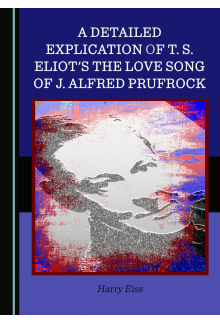- Home
- Academic & Professional Literature
- Humanities
- Linguistics
- A Detailed Explication of T. S. Eliot's The Love Song of J. Alfred Prufrock
A Detailed Explication of T. S. Eliot's The Love Song of J. Alfred Prufrock
Author : Harry Eiss
Published: 2022
Number of pages: 410
Format: Hardback
Eliot references Michelangelo in the poem, bringing in the great painter of the ceiling of the Sistine Chapel. Most immediately recognize his name and work, but do not realize how he expressed a similar personal struggle between the desires of the flesh and the spirit. Both of them admired Dante’s Divine Comedy, and its inclusion of amour as a means to salvation. Dante’s work is generally seen as the greatest literature ever to come out of Italy.
This book is an expanded revision of Seeking God in the Works of T. S. Eliot and Michelangelo. It explores how T.S Eliot struggled with the highest meanings of existence in his poetry and his own life, and perhaps managed to express what has become known as a modernist (and post-modernist) view of what Rudolph Otto designated the mysterium tremendum, the experience of a mystical awe, the experience of God.

